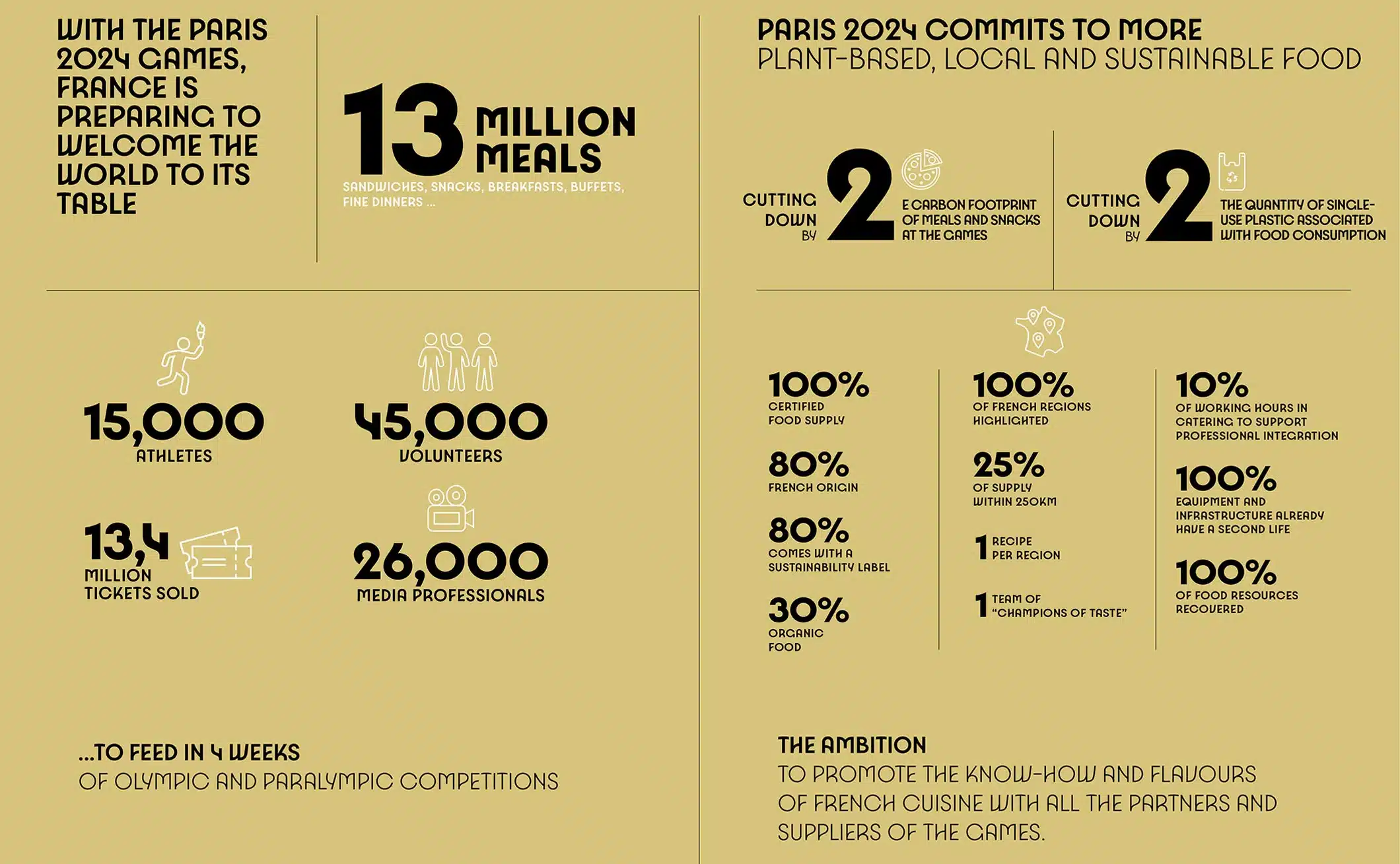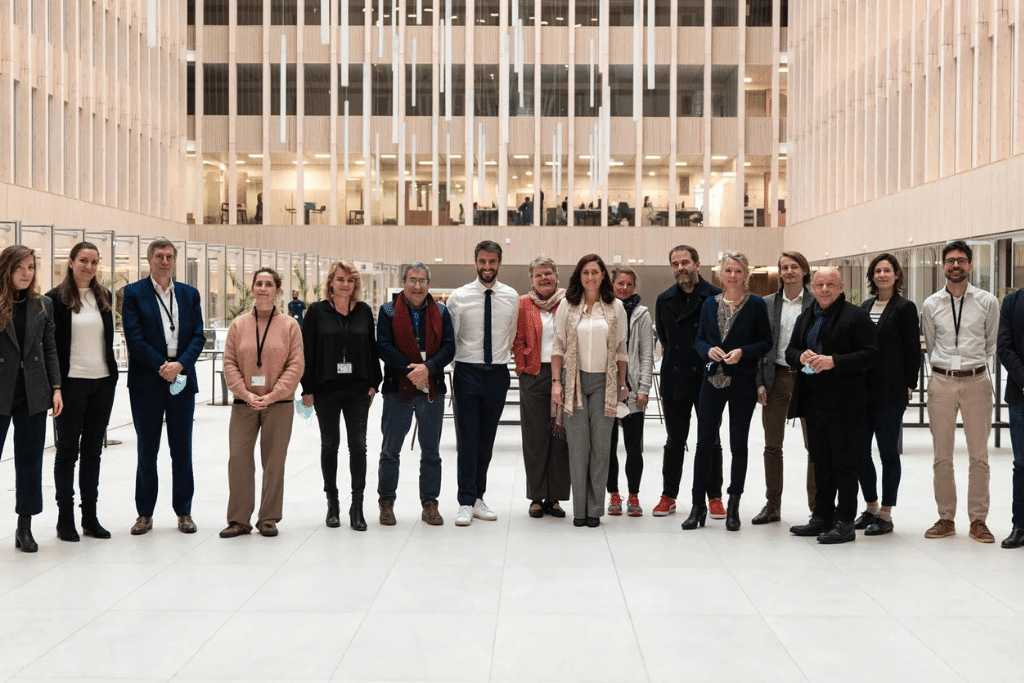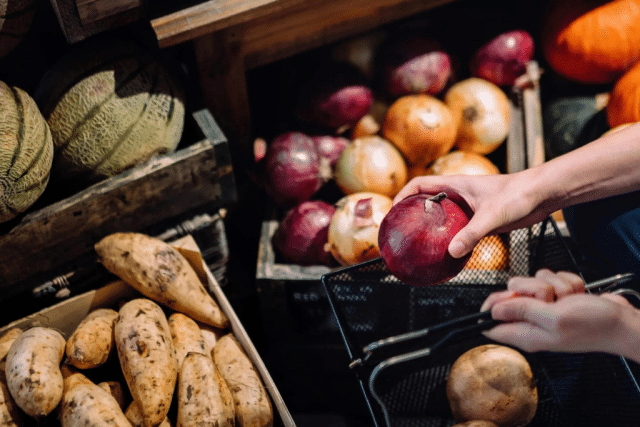Central to the Organising Committee’s successful bid to host next year’s Olympic and Paralympic Games was the pledge to reduce the carbon footprint of the Games by half compared to previous editions, and to promote responsible ways of living. While catering is one of the smaller contributors to the Games’ carbon emissions, making it more sustainable is highly symbolic in a country renowned for its cuisine. It is also an integral part of Paris 2024’s efforts to set new standards for sustainable events.
There are six commitments on the menu for everyone at the Games – spectators, athletes, staff, volunteers, the media and the Olympic and Paralympic community – and at all venues.
Those include the challenging targets to halve the average carbon footprint of the 13 million meals served over the four weeks; cut single-use plastic by half; have 80 per cent of the products sourced locally or within France; reduce food waste and recover 100 per cent of unconsumed resources; to reuse all catering equipment; and to reserve 10 per cent of jobs overall – and 15 per cent in the Olympic and Paralympic Village – for people with disabilities or from disadvantaged backgrounds.

The “food vision”
Paris 2024’s “food vision” prioritises quality, taste and experience, and purity of products. Its development followed extensive consultations with representative groups across France and the entire agri-food sector.
The majority of the relevant sectors were consulted over an 18-month period – 120 organisations in total, ranging from agriculture and catering to NGOs and nutritionists, as well as Paris 2024 partners.
The organisers also conducted 40 individual interviews and 10 group workshops on integrating sustainability at every stage, from food and drink supply and preparation to surplus management.
Two hundred athletes (80 per cent of them foreign) were also surveyed to explore their eating habits, cultural needs and tastes. The vast majority of the athletes (98 per cent) are also “concerned” or “very concerned” by the social and environmental impacts of their diet.

Turning commitments into action
“Serving 13 million meals in four weeks at over 40 sites is going to be the largest event catering operation in the world,” said Etienne Thobois, Paris 2024 Chief Executive Officer. “It’s an immense operational challenge. For France, it’s an opportunity to showcase our expertise at every step of the chain – production, logistics, preparation, service and waste management.”
That figure of 13 million meals comprises 5 million snacks for spectators, 3.5 million meals for staff and volunteers, 2.2 million for competitors, 1.8 million for the media, 350,000 hospitality meals, and a further 150,000 for the Olympic and Paralympic community.
Food systems under pressure
Feeding a growing global population is putting enormous pressure on the world’s food systems, with unsustainable agricultural practices accelerating biodiversity loss, temperature rises and soil degradation.
According to Thierry Marx, Paris 2024 can provide a more responsible food model for other major sporting and cultural events: “The Games are enabling us to bring together the entire food ecosystem around a vision for catering that is sustainable from an environmental and social point of view. It is a unique opportunity to support the food transition in a positive way by proving that what is good for our health and the planet is also good to eat! With more plants on our plates, as well as more local and seasonal products and greater responsibility throughout the entire supply chain, Paris 2024 isn’t just setting out specifications – it’s presenting several opportunities for us all to seize.”
